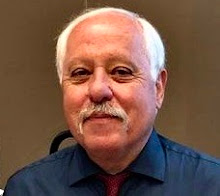Yes, 2016 has been a strange year, ranging from the merely
banal to the truly bizarre. This should come as no surprise because, according to the Chinese zodiac, it has been the Year of the Monkey. Worse, it happens to be a fire monkey, portending
all sorts of shenanigans and monkeyshines in both microcosm and macrocosm.
In January, the University of Oregon School of Journalism
and Communication initiated a yearlong centennial celebration, culminating in a
grand finale in October at the annual Hall of Achievement dinner. My
association with the school dates back to my undergraduate days in the early
and mid-70s.
Serving on a PRSA task force known as the Oregon Statewide
Governance Committee for much of the year, representatives from three chapters
formally investigated whether our collective governance challenges could be
solved by merging into one chapter, thus sharing the workload and
increasing member value.
By fall, members throughout the state had joined
the conversation before casting their ballots to support the merger, along with bylaws
developed by representatives from all three chapters. In November, PRSA
headquarters in New York approved the consolidation of the newly formed
PRSA Oregon Chapter.
As the presidential sweepstakes wore on throughout the
primary season in the spring, we averted our eyes as the battles raged
by attending a few concerts, including Rickie Lee Jones and The Who. By June, there was light at the end of the tunnel; the end of the school year was upon us and hiking season would be nigh.
In July, it was back to “The Motherland” for a visit with
our Italian cousins near Genoa on the Italian Riviera. As usual, I
met many interesting individuals at the Hotel Columbo, including a Dutchman who
joined me on a boat tour of the Cinque Terre and a Hungarian genealogist who informed me of the Mormon archives.
Nearly giving up twice on a walking tour from my
hotel to the federal building to the city hall, I found his birth record thanks
to some sleuthing by my brother and cousin. A couple of
days later, daughter Gina joined me in Torino, where we toured two fine
museums, one on Egypt and the other on the history of cinema.
Nietzsche noted that every pain is a distinct signal that
something is wrong, which may engender a good or bad result depending on the
sagacity and strength of mind of the sufferer. Anxiety may precipitate panic,
or an accurate analysis of what is amiss. So rather than panic, we laid out a
plan of attack.
In an effort to “make hay while the sun shines,” we embarked on several late summer hikes on the Wenatchee River Ranger District in Washington near the Owl Conservatory.
One, a wilderness ranger reunion of sorts, could only be described as a "Greek oddity" to Labyrinth Mountain (below) in the Little Wenatchee River area. Other treks included Lanham Lake near Stevens Pass and Hidden Lake on the side of Nason Ridge near Lake Wenatchee.
The dragonflies (above) were out in force during these late season
jaunts. Unfortunately, so were the yellow jackets. As we trekked off trail at Lanham Lake, I disturbed a nest and was stung five
times by the nasty little buggers. It had been over 40 years since I was last
stung; had almost forgot what it felt like. It all came back.
Worse, the President-elect, who spent the campaign liberally
trafficking in misogyny and xenophobia, believes that (journalists are) "the lowest form of humanity, disgusting and corrupt, dishonest, crooked." Guess my chosen
profession now ranks lower on the food chain than wilderness rangers and bullfighters.
Some advice from Nietzsche: “Fulfillment (will) be reached
not by avoiding pain, but by recognizing its role as a natural inevitable step
on the way to reaching anything good.” That sentiment reflects another view:
“not everything which makes us feel better is good for us, and not everything
which hurts may be bad.”













